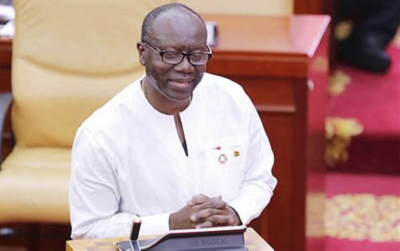
Time to consolidate gains in the economy so far
Last week, the government laid before Parliament, its 2019 Budget Statement and Economic Policy in which it earmarked to spend a total of GH¢73.4 billion in the 2019 fiscal year.
The expenditure (including clearance of arrears) is equivalent to 21.3 per cent of gross domestic product (GDP), representing an increase of 27 per cent above the projected outturn for 2018.
The amount is, however, more than the total revenue and grants expected for the year, which is estimated at GH¢58.9 billion (17.1 per cent of the rebased GDP), up from a projected outturn of GH¢46.8 billion (15.7 per cent of rebased GDP in 2018).
This implies that the 2019 fiscal operations will result in an overall budget deficit of GH¢14.5 billion, equivalent to 4.2 per cent of GDP.
For the breakdown on expenditure, the government intends to expend GH¢19.4 billion, representing about 26.5 per cent of total expenditure on wages and salaries, GH¢6.3 billion, representing 1.8 per cent of GDP, on goods and service, a total of GH¢18.6 billion on interest payments on the public debt and an estimated GH¢13.8 billion as earmarked funds.
For capital expenditure, a projected amount of GH¢8.5 billion, equivalent to 2.5 per cent of GDP, and a growth of 55.7 per cent over the 2018 projected outturn is to be spent.
Since it was read by the Minister of Finance, Mr Ken Ofori -Atta last week, the budget has largely received some positive reactions as many Ghanaians are of the view that it will help revive the private sector which has been slightly dormant in the last two years because of the government’s inability to spend on huge capital projects across the country.
The budget has also come at a time when the government is exiting the International Monetary Fund (IMF) programme, which became a check on the government in terms of its spending.
So far, the government is celebrating its near exit from the programme with the assurance that while it will work to maintain fiscal discipline, it will afford it some laxity to spend in the productive sectors, a move which will help stimulate more activities within the economy.
But while the praise singing continues, some economists are also cautioning the government against over spending that may draw the country back into the hands of the Bretton Wood institution.
For instance, an economist, Professor John Gartchie Gatsi, has said the implementation of the 2019 budget was a test case for the government to maintain a moderate and a disciplined posture in the face of gains made after the rebasing of the GDP and exiting the IMF programme.
According to him, for now, the onus was on the government to implement the 2019 budget, which is a post IMF exit one, with a commitment to carry through the values and lessons learnt under the IMF to ensure proper economic and monetary policy management.
The Head of the Economics Department at ISSER, Prof. Peter Quartey, also said the implementation of the outlined programmes in the budget was now key, adding that, should the government implement 70 to 80 per cent of the intended programmes in the statement, there will be a lot of transformation in terms of infrastructure and jobs.
The Graphic Business commends the government for its ability to make some remarkable progress with the management of the economy.
We are also, particularly, excited about the outlined programmes to boost domestic revenue generation and rein in public spending to help grow the economy by 7.6 per cent as projected.
The commitment to bring the fiscal deficit further down to 4.2 per cent of GDP next year is also in the right direction and gives hope not only to businesses in Ghana, but for the investor community as well.
It is our strongest believe that the government will heed the advice of the economists and some members of the public and refrain from doing what will only send the country backwards. The lessons are on the wall and we acknowledge the bold assurances from the Finance Minister that, “Never Again’. — GB
